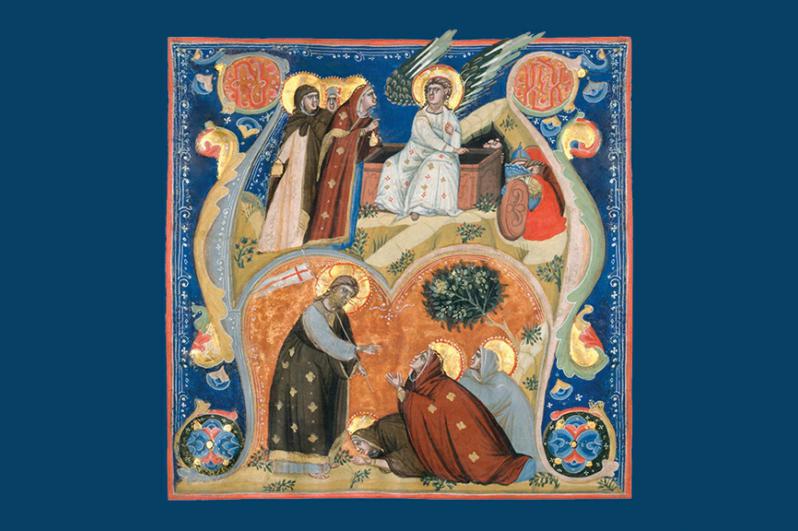Fifty days to celebrate
It's so important it takes 50 days to celebrate: it's Easter. The center of the Church's faith and her annual calendar, the Resurrection of Our Lord and Savior Jesus Christ is so significant that it takes seven full weeks to contemplate, pray, and celebrate.
Alleluia appears again not only as the acclamation for the Gospel but sprinkled throughout hymns and psalms. It also resounds when we are dismissed from Mass from Easter Sunday to the Second Sunday of Easter and all the days between, called the Octave of Easter, and also on Pentecost. This is such momentous good news that we are sent to bring the Alleluia to those beyond the walls of our churches. The Gloria also returns for Sundays and the octave and any feast days during the Easter season.
You'll also notice that the Old Testament takes a back seat to the New Testament throughout Easter. In all liturgies -- Sunday and daily Masses, funerals, confirmations, first communions, ordinations, anointing of the sick -- all the biblical texts, except the Psalms, are from New Testament books.
The first reading on Sundays and weekdays is usually from the Acts of the Apostles, the second from a New Testament letter other than those of Paul, or from the Book of Revelation. Likewise, the Gospel of John predominates as the Gospel proclaimed on those days.
The first week of Easter, the octave, features Acts and then narratives from any of the four Gospels detailing accounts of the Risen Christ's meetings with his apostles and disciples. Unique to Easter, the octave days are celebrated as solemnities, but without the Creed; any saints usually celebrated that week likewise take a back seat to these days.
The Sunday and daily readings from the Acts of the Apostles tell the sacred history of the early Church. The focus for about the first half of the Easter season is on the Church after Pentecost led by Peter, and the second half is about Paul and his extraordinary ministry to the gentiles and the nations.
Forty days into the season, we observe the Solemnity of the Ascension -- Ascension Thursday. At Mass that day, we hear from St. Luke about the Lord's return to his Father and his commission to his disciples to bring his word to the ends of the earth. With the commission is the Lord's promise to be with them until he returns. Still frightened by all this, they lock themselves away until, emboldened by the descent of the Holy Spirit 10 days later, they burst out of the confines of that locked room and take up the Lord's commission.
Pentecost marks the manifestation or epiphany of the Church. The Church is now seen by all the world as the place where the nations may encounter the Risen Lord. "They devoted themselves to the teaching of the apostles and to the communal life, to the breaking of the bread, and to the prayers." (Acts 2:42). Simply and succinctly, Acts outlines the life of the Church. By placing this "definition" of the Church after Pentecost, Acts makes clear that this is not a human invention but is the action of the Holy Spirit.
During this extended celebration of the Resurrection, in addition to the biblical texts, the prayers of the liturgy -- the collect, the prayer over the offerings, the preface of the Eucharistic Prayer, the post-Communion prayer, and the solemn blessing will do three things. First and obviously, rejoice about the Resurrection; second, echo the Lord's commission to his disciples and us; and third, remind us that we do this both in and as the community of his disciples, his Church.
A suggestion for your prayer: read the whole of the Acts of the Apostles at some point during the Octave of Easter. It won't take long. Take your time. Some things may jump out at you right away; others might get a boost when you hear a section of the book proclaimed at Mass. To use a phrase -- you'll have a sense of the big picture and how the pieces heard during Easter fit together.
Here are a couple of suggestions for those who want a bit more. The second of the three volumes of his series, this one "The Liturgical Year: Lent, the Sacred Paschal Triduum, and Easter Time" by Adrien Nocent. For preachers, a commentary with homily helps for the Easter weekdays, "Easter Fire" by Bishop Richard Sklba and Joseph Juknialis.
Happy Easter -- all 50 days!


















